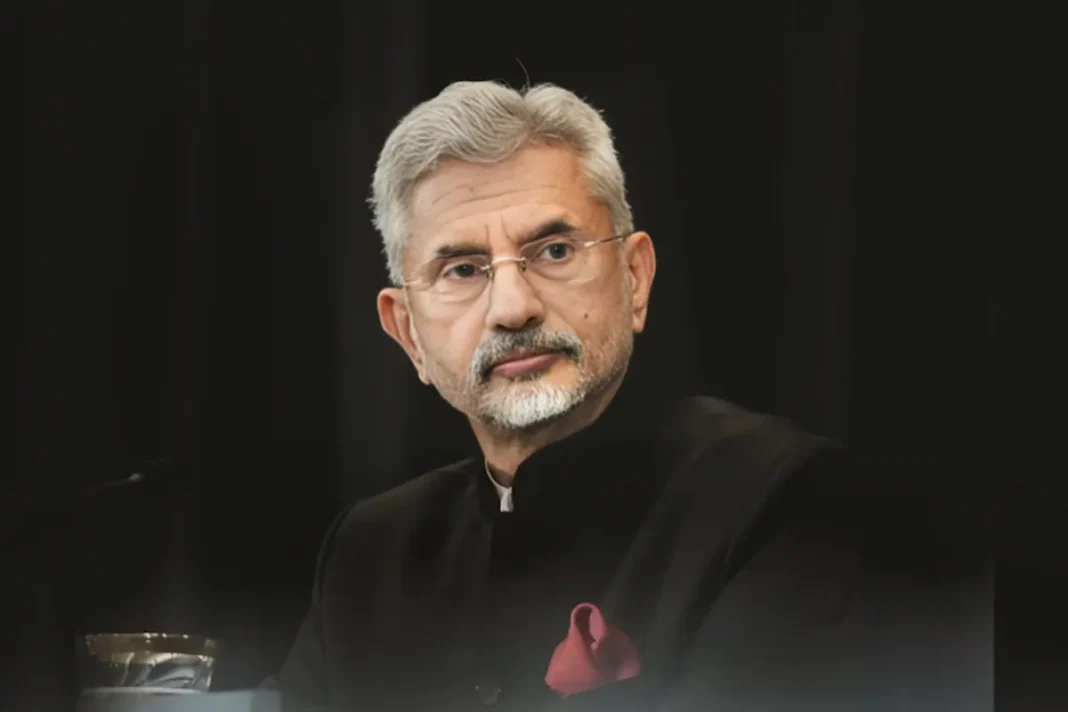Israel Hamas Conflict: India’s External Affairs Minister, S Jaishankar, delivered a significant address at a security conference in Munich, emphasizing India’s long-standing support for a two-state solution to the Israel vs Hamas conflict. He unequivocally condemned the October 7 attacks on Israeli cities by Hamas as acts of terrorism, stressing the need for unambiguous denouncement and adherence to humanitarian laws. Jaishankar highlighted the importance of minimizing civilian casualties and establishing a sustainable humanitarian corridor for relief efforts.
Jaishankar underscored the urgency of achieving a permanent and comprehensive resolution to the conflict to prevent future recurrences of violence. He emphasized the imperative of addressing the underlying issues and facilitating the return of hostages to their families.
History of Israel-Hamas War
The roots of the ongoing strife between Israel and Hamas dates back long before Israel’s establishment and Hamas formation. Both claim the land between the Jordan River and the Mediterranean Sea as their own, sparking recurring disputes over territory. This enduring conflict has seen sporadic violence and displacement, with thousands of casualties over the past 15 years. Israel and Hamas have a tumultuous relationship, swinging between periods of calm and intense conflict. Despite occasional peace, tensions persist. Hamas, labeled a terrorist group by the U.S. since 1997, gained control of Gaza after winning elections in 2006 and later seized full power in 2007. Unlike the Palestinian Authority, Hamas refuses to recognize Israel and has employed violence, including rocket attacks, bombings, and kidnappings, often with support from Iran.
What Started the War
The Israel-Hamas War, a significant conflict between Israel and Palestinian militants, notably Hamas and the Palestinian Islamic Jihad (PIJ), commenced on October 7, 2023. Hamas initiated the conflict by launching a coordinated assault on Israel from the Gaza Strip, employing land, sea, and air attacks. This offensive resulted in devastating consequences, with over 1,200 casualties, primarily among Israeli citizens, marking it as one of the deadliest days for Israel since its independence.
The October 7 attack also led to the abduction of more than 240 individuals. In response, Israel declared a state of war, a significant escalation not witnessed since the Yom Kippur War in 1973. The Israel Defense Forces (IDF) swiftly retaliated with airstrikes targeting Gaza, followed by the deployment of ground troops and armored vehicles in subsequent weeks.
According to Gaza’s Hamas-run authorities, the Israeli offensive has resulted in the deaths of more than 25,000 people in Gaza.
India’s Stand on the War
India’s External Affairs Minister, S Jaishankar, reiterated India’s longstanding support for a two-state solution to the Israel vs Hamas conflict. Emphasizing India’s consistent position on the Palestine issue, Jaishankar highlighted the increasing global consensus on the urgency of this resolution. He stressed that India, along with many other countries, believes that the two-state solution is not only necessary but more pressing than ever before.
India’s Approach to Diplomacy
When asked about India’s foreign policy direction, S Jaishankar defended the country’s approach of maintaining multiple options. He addressed concerns about India’s continued procurement of crude oil from Russia despite the Ukraine conflict, stating that having diverse options is a sign of intelligence. Jaishankar highlighted the complexities faced by different countries, emphasizing that relationships are not one-dimensional. He stressed that India’s engagements are not solely transactional, but also based on shared values and experiences. Jaishankar underscored the importance of having choices in international relations, stating that good partners offer options while smart partners make strategic decisions.
India’s Global Engagement: BRICS and Beyond
When asked, the External Affairs Minister highlighted the origins of the BRICS (Brazil-Russia-India-China-South Africa) grouping, which emerged during a period of Western dominance. He noted that BRICS provided an alternative forum for significant global powers outside the G7 to contribute and collaborate.
Jaishankar revealed that last year, approximately 30 countries expressed interest in joining BRICS, underscoring its perceived value and relevance. He expressed pride in India’s role within BRICS, suggesting it’s a testament to India’s diplomatic efforts.
He emphasized the distinction between being non-Western and anti-Western, asserting that India maintains robust relations with Western countries while also engaging with other regions.


